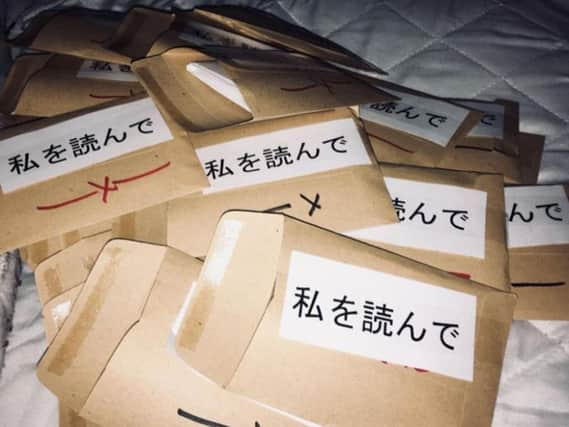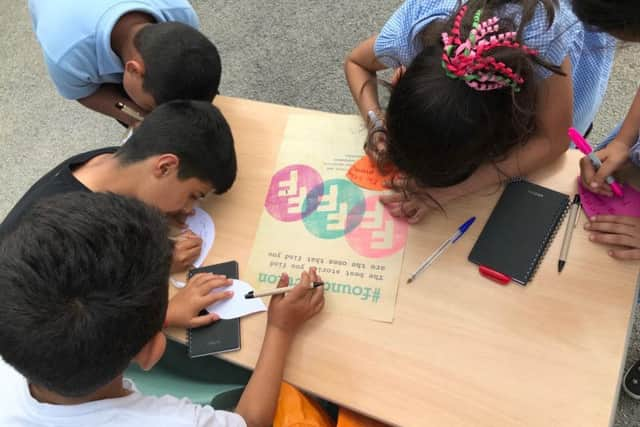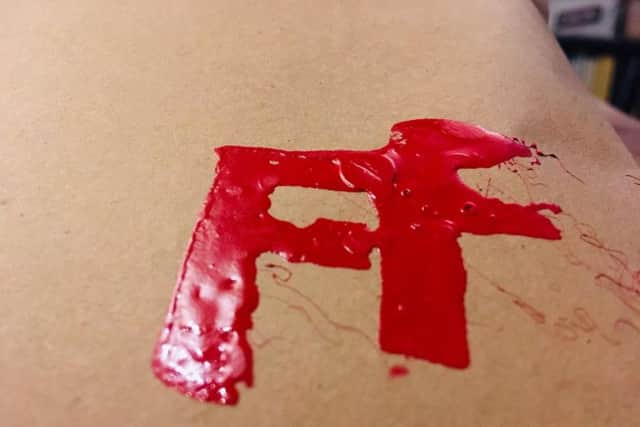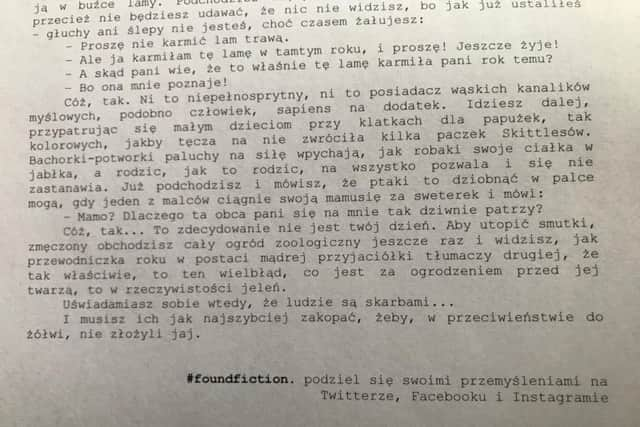The hidden Yorkshire envelopes sparking a global storytelling movement


In 2013, however, a conversation with a friend highlighted how not all writers have the same confidence:
“I assumed he was putting himself out there as writers do… but he was quite shy and he didn’t like the idea of people reading his work and knowing it was him who’d written it”.
Advertisement
Hide AdAdvertisement
Hide AdAs a compromise, Steve’s friend agreed he’d publish his work anonymously, but rather than using a pseudonym or no name at all, the pair decided on a more creative publishing method.


The duo typed up a short story, placed it in an envelope marked “READ ME”, and hid it on the streets of York for a passer-by to find.
It was from this spark of inspiration that ‘Found Fiction’ was born. A guerilla publishing movement, Found Fiction has cumulatively distributed some 6,000 stories on city streets in 15 countries since beginning in York and Leeds seven years ago.
With an altruistic mission to “inspire people in everyday places”, Found Fiction is a storytelling movement beginning to go global - and showing no signs of slowing down soon.
Inspiring passers-by in Leeds and beyond


Advertisement
Hide AdAdvertisement
Hide AdThough Steve and his writer friend (who partnered up to head Found Fiction) never discovered what happened to that first envelope, Steve does recall one of their earliest stories being discovered by a tourist in Leeds Art Gallery.
Using the #FoundFiction hashtag printed at the bottom of the story, the finder got in touch via Twitter to say how much the discovery had brightened their day. It was a response that prompted Steve and his partner to keep writing and distributing short stories of every variety in the pockets of time they found outside of their regular day jobs.
The people who discover the Found Fiction envelopes, says Steve, are often profoundly moved by the encounter:
“We have lovely emails coming in all the time...We get feedback along the lines of ‘I'd forgotten how much I like reading’ or ‘I'm taking this as a sign that I should get back into writing’.”


Advertisement
Hide AdAdvertisement
Hide AdIn one memorable encounter, a reader emailed in to say that she had happened upon an envelope at a bar after being stood up for a date, brightening an evening that otherwise went awry.
Another consequence of the envelopes being discovered is that readers often want to get involved with the project. As a result, the Found Fiction project now has a network of around 80 writers and 80 distributors filling their local streets with short stories.
None of these writers or distributors make money from putting the envelopes out into the world, and often never find out what happens to the stories. The appeal, says Steve, is simply in knowing that you’ve reminded someone “that there is joy around them in the physical world”.
Discovering stories in everyday places


The ultimate aim of Found Fiction, in Steve’s eyes, is to “transcend people’s experience of physical places”. Writers, he says, often already have a sense of a place being full of stories, and this is a vision he wants to bring to everyone who picks up a Found Fiction story:
Advertisement
Hide AdAdvertisement
Hide Ad“They might find the story on their commute, perhaps when they’re just waiting for the week to be over…this [Found Fiction story] is a little gem they’ve discovered that reminds them of the power of literature. It’s about disrupting people’s routines and getting their attention away from the digital world”.
The hidden element, too, is a crucial part of a passer-by’s encounter with an envelope. They have to be hidden, says Steve, “in a place where people will feel like they consciously found it… rather than having it where all the flyers are at the bar”.
As such, distributors are encouraged to come up with creative places for hiding envelopes, from cash points to underneath sofa cushions or perched in the crevices of trees. One distributor, as he was laying floorboards, hid a story beneath the ground. Steve’s own most creative hiding place was in a large sealed jug, released into the waters of the Lake District.
It’s up to the readers what they do with the story once they’ve found it. Many use the #FoundFiction hashtag to announce their discovery, some re-hide the story and others simply keep them to themselves. Anyone is free to write and submit their own story - a maximum of 500 words - which may, after some vetting, then be distributed.
A global vision
Advertisement
Hide AdAdvertisement
Hide AdFound Fiction has gradually taken hold of imaginations across the globe, with stories having ended up in 15 different countries and been translated into two different languages - French and Polish.
There’s no revenue to be made from the envelopes “that we’d be interested in”, says Steve. Instead, Found Fiction has sought various arts funding and, alongside the envelopes, has led workshops, projects and installations in Yorkshire and beyond.
Though Steve admits that these projects have been taking up more time recently than in previous years, Found Fiction has ambitious plans for the future of its hidden stories:
“We just want to take it all to its limit… each year it grows so much more than the year before”.
Advertisement
Hide AdAdvertisement
Hide AdAs long as they can remain sustainable, Steve hopes Found Fiction will eventually find its way into every corner of the globe, inspiring people from all walks of life. But for now, if you’re walking the streets of Leeds and York, keep your eyes peeled - you might stumble across a story meant just for you.
Found Fiction welcomes emails from anyone who would like to work with the project, whether as a writer, a distributor or in an events capacity. You can email them at fictionfound@gmail.com or reach them on Instagram, Facebook and Twitter.